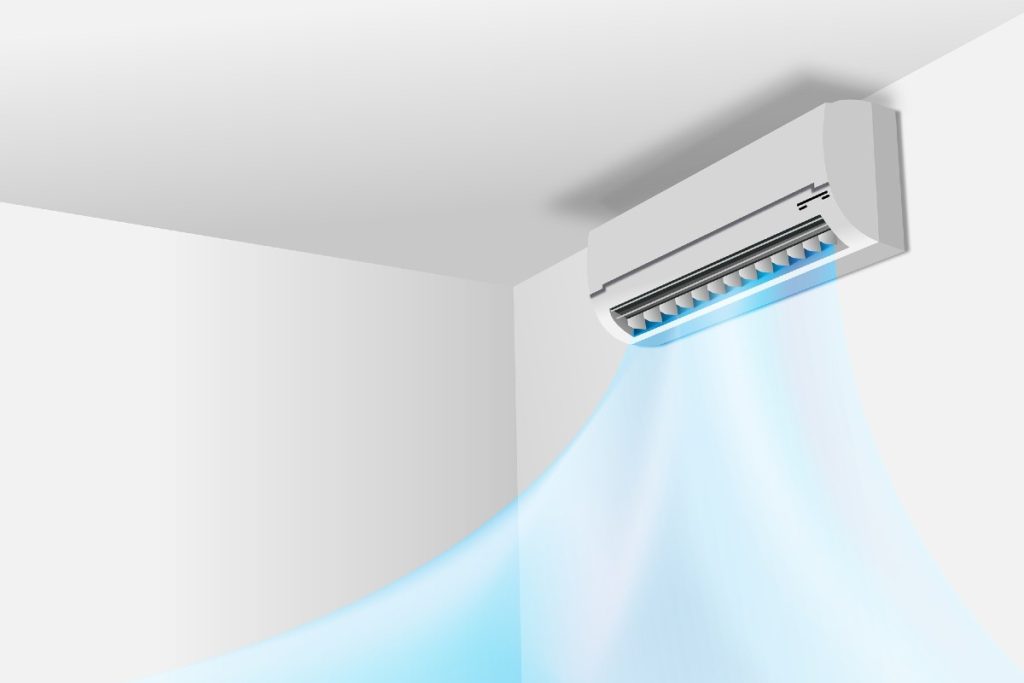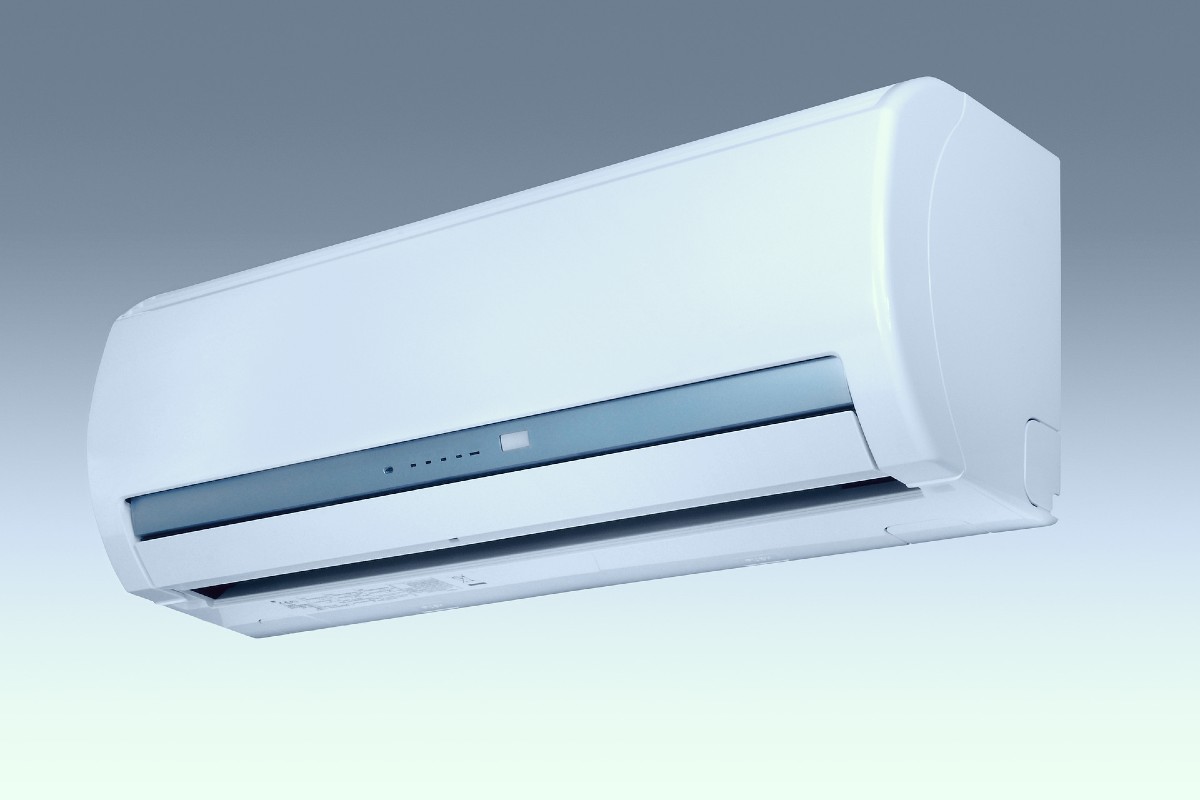One day, eventually, probably when the weather is at its hottest, your AC unit may freeze up and stop working. Thankfully, it doesn’t usually mean that your unit needs replacing. While it’s deeply inconvenient and liable to turn a beautiful summer’s day into a unpleasant and scorching one in minutes, it’s a surprisingly common and often easily fixed problem. Read on for our tips on what to do when your AC unit freezes up.
How can you tell if your AC Unit is Freezing Up?
Begin by checking the vents that blow air into each room, the supply registers. If these are warm, it is a good sign that you might have a frozen evaporator coil. This is the part of your AC unit that absorbs the heat from the air in your home.
Open the panel and check for ice. If you can see a layer of ice on the coil, it is a sure bet that it is frozen inside, but you may also see just a small amount of frost.
Why is your AC Unit freezing?
To understand the reasons for your AC unit freezing up and how to fix the problem, it is helpful to understand how an AC unit works.
Your AC unit uses a process called the Joule-Thomson effect. When air is hot, its molecules contain a lot of energy, and inversely cold air has lower energy. When you compress a gas, it gains energy, and when you cause it to expand, it loses energy and cools.
Your AC unit uses a refrigerant that is expanded within the evaporator coil to cause a drop in temperature, which goes on to cool the air in the home. If there is a malfunction or blockage, the system can become disrupted. This results in the refrigerant becoming too cold, passing below its freezing temperature, and icing over.
What to do When Your AC Unit Freezes Up?
There are three leading causes for this happening. In order for you to know what to do when your AC unit freezes up, we have provided you with the causes and fixes for each type of problem. Remember that keeping your air conditioner maintained and in tip-top condition will prolong its life, as well as save you money on your energy bill.
Problem 1: Blocked Air Flow
Your air conditioner needs a constant airflow passing through it while in operation to ensure that moisture doesn’t start to settle on the coils and freeze. Think of it like coming out of a pool. As long as a breeze blows across you, you’ll dry out quickly, whereas a lack of air movement could leave you wet and cold for a prolonged period.
To ensure that air flows freely through the system, check that the return vents are clear of obstructions. Then check if your air filters are not dirty to the point of becoming clogged. Excessive dirt on the filters will restrict airflow.
Air filters are cheap to buy and should be replaced regularly. The United States Department of Energy reports that changing your HVAC filter can improve the efficiency of your HVAC equipment by 5% to 15%.
How to fix it:
Here is what to do when your AC unit freezes up due to blocked airflow caused by a clogged filter. Begin by turning off your system and allowing time to defrost. This will typically take 1 to 3 hours.
Next, turn on the fan only and allow it to run for an hour. During this time, replace the air filter. Once this has been done, your system should return to normal.

Problem 2: Mechanical problems and refrigerant leaks
By their nature, Air conditioners have many moving parts, all of which can be problematic when things start to go wrong. At times, this can cause a breakdown where the machine simply cannot provide the cooling it is meant to. At other times the problem results in too much cooling, leading to it freezing up – so the cooling effect is ongoing, but it is unable to blow this cool air through to you.
Also Read: What Temperature Should I Set My Thermostat in Winter?
The refrigerant in your system is designed to regulate the temperature throughout the AC unit. Sometimes a leak can occur, perhaps due to vibrations or interaction with pet urine that causes corrosion of the coils or connections. If the level of the refrigerant drops too low, that is when your AC unit freezes up.
How to fix it:
A range of possible mechanical problems can occur within your AC unit, such as a loose drive belt, bearings that require oil, the condenser unit, and the fans that drive the air through the system. Some of these can be easily rectified, while others are a warning that any fix will be temporary at best and that a new machine may soon be needed.
Any repairs should be carried out by a trained professional for safety. While some parts, such as the drive belt, can be accessed and replaced, it is worth remembering that certain parts of the machine will store enough power to kill you, even when recently turned off. We firmly recommend calling a professional to carry out regular services and any repairs that are needed.
Just a note on refrigerants. AC systems from pre-2009 will use HCFC-22 as a refrigerant. The production or import of HCFC-22 is banned in the USA, and your engineer may struggle to source this anymore. Systems made since 2009 use environmentally friendly refrigerant, R-410A. Older systems cannot use R-410A and will no longer be operational when HCFC-22 cannot be sourced, forcing you to upgrade your system.
Problem 3: Cool summer nights may result in your AC unit freezing up:
Air conditioners are designed and calibrated to operate within a set of optimum temperature thresholds. When we turn on our AC for summer, sometimes it’s easy to forget that a significantly cooler summer night may occur. When this happens, it can cause problems with your AC.
How to fix it:
Follow the routine as per Problem 1 to defrost your unit. Then use a programmable thermostat to avoid the problem occurring again. Set it to automatically stop operation when the temperature falls below 60 degrees Fahrenheit / 16 degrees Celsius.
If you lack a programmable thermometer, look out for cool nights in advance and simply shut down the AC and open your windows to allow cool summer night air in instead.
Summary
A freezing AC is not uncommon, but it can be a real frustration for many homeowners. Now that you know what to do when your AC freezes up, remember to give your AC some regular maintenance. If your unit doesn’t have automatic controls, be sure to tweak them in advance of the temperatures changing.
Hiring a professional to service your machine regularly will save you serious headaches in the future. Not only that but also it keeps your energy bill down and the AC unit running for years to come.
You Might Also Like to Read: Does Grass Die in Winter?

